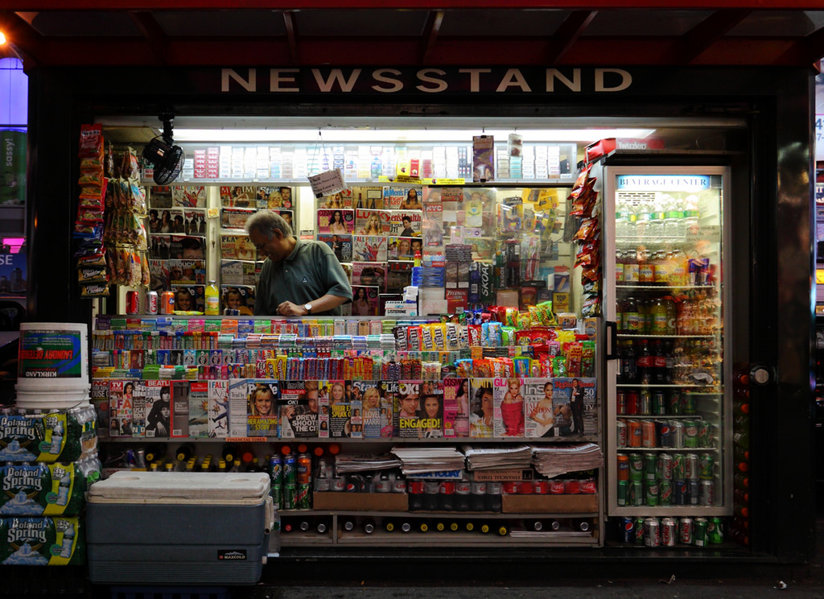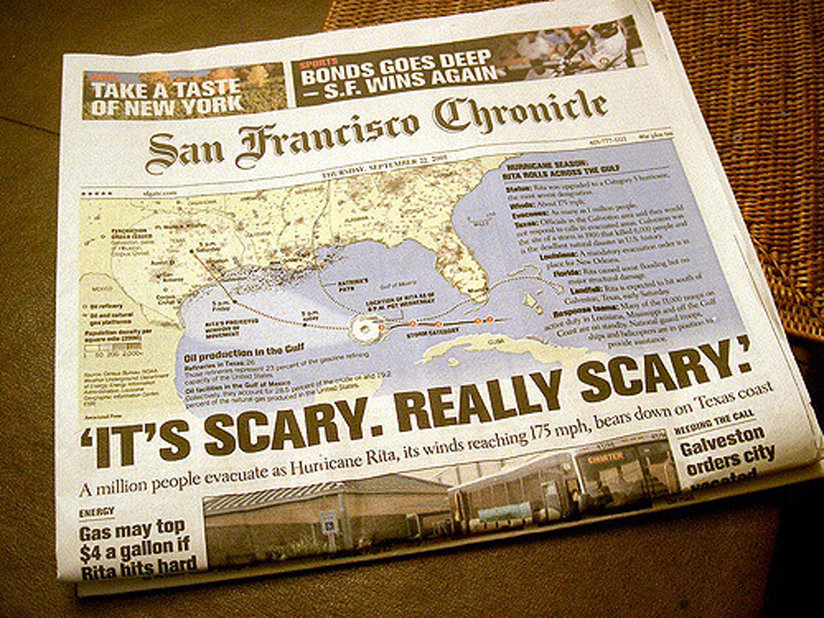The Menacing Horrorshow of Media and Its “Objectivity”
To say there’s been significant recent debate about the media, its role and its reliability is probably an understatement.
Fear not, though, I won’t wade into the highly publicized never-ending battle between politicians and mainstream media—that’s getting more than enough coverage on its own. But, there is a fascinating aspect of the conversation that leaps to mind every time I hear defensive hand-wringing from media about their “objectivity.”

To begin, it’s at least a little humorous when media rends their garments in an indignant “how could you possibly even think of doubting us?” attitude, when they have elevated doubting and denigrating others to a sad, national pastime and bloodsport.
Still, any discussion of the media should probably begin with an acknowledgment that, as with all things, “the media” is not a monolith. There’s wide variety in the quality of media out there and just because I may disagree with the view espoused by a particular outlet, doesn’t by itself mean the outlet is “bad.” There is, however, precious little reporting that actually rises to the definition of “journalism.” So much of what splashes across the grocery store checkout lines doesn’t get close to earning that label, yet its defenders seem to lump it all together.
In any case, I find it offensive when media pretend or claim “objectivity” as if the realities they present somehow match to the real world in which any of us live. In my view, the question of “objectivity” undercuts the details of any one story—it begins with the definition of what reporters believe a story is.
Still, a world of extreme danger is the “objective” view the media hammers into us.
There’s an old adage that “dog bites man” is not news whereas “man bites dog” is, even though the latter is freakish, and by itself, except for that one dog and one man, has virtually no importance or relevance to anyone’s life. But insofar as it does define what “news” is, then I don’t think we’re out of line to conclude the media specializes in the bizarre, out-of-the ordinary and by-and-large unimportant. Such stories contribute virtually nothing to how anyone might live, other than providing fodder for coffee-room gossip.
And to a disappointing degree, that is the kind of information media delivers to us everyday.
But, I think it’s actually worse than just weird and unimportant. Look at what screams across the headlines. Writers and editors sometimes have to go thousands of miles away to ensure the headlines focus on death, destruction, mayhem and the belittling of someone or something. (And, yes, that is perhaps so obvious, it’s actually trite to mention it.)
Now let’s do a little drill: let’s think back over the last two months of real life. Recall your interactions with family and activities at work. Unless you live in a crackhouse, serve in the fire department, police force or an emergency room or are deployed to a war zone, your life probably has relatively little of the death, destruction and mayhem so passionately pursued and promoted by the media.
Still, a world of extreme danger is the “objective” view the media hammers into us.

Conspicuously absent are stories about ordinary or even extraordinary but frankly everyday people helping one another—of colleagues going above and beyond or of busy working parents making time to volunteer for local charities.
Also absent are detailed stories that describe not only problems but efforts to fix them or options for making something right. And what’s thrust into the stories is only part of the problem, what’s left out is also important. How many stories scream incomplete information? Although we can be fairly assured that mayhem will make its way in, redemption and expressions of hope are pretty well guaranteed to be left out. If a business owner or even a parent were to make decisions about their business or children based on the kind of hair-on-fire, incomplete data we see in the papers, businesses would collapse and who knows what would happen to the kids.
Mmmm. Maybe we’ve hit on an explanation for some of the wacky moves undertaken by governments?
In any case, when googled, the definition for “news” is: “newly received or noteworthy information, especially about recent or important events.”
That definition has no requirement for the information to be about death and destruction.
The media presents the world through a filter that favors the useless and destructive.
An objective look at life would include both the positive and negative moments. Some of the most successful amongst us would even say that concentrating on the positive and moving past the negative is what helped them achieve what they did. For them, objective reality frames negative experience as mere learning opportunities and uses the positive to build productive lives. This is a perfectly valid version of objective reality but is one which virtually never shows up in the menacing horrorshow portrayed in the media.
Looking back at the Google definition of “news,” it seems that “noteworthiness” and “importance” could be gauged by level of usefulness, not level of shock. But the media presents the world through a filter that favors the useless and destructive.
How could that possibly be construed as “objective?”
Take the example of religion. Millions of people derive daily comfort from their faiths. Millions donate time and talent to faith-inspired activities that benefit others and the community. Faith regularly helps those who suffer addiction to achieve recovery, helps those who have suffered losses find peace and helps those who are directionless find purpose.
Why are such stories any less “objective,” “noteworthy” or “important” than the highly filtered hyperbole passed off a “news”?
Perhaps media believes such stories don’t sell. Okay, fair enough, if they feel they “have” to promote death and destruction to sell, then don’t pretend it’s “objective.” Have at least enough honesty to say you’re focused on the shocking because that’s what people will buy. Be honest that what’s driving your stories is marketing.
The initial choice to cover the bizarre, shocking or deathful then predetermines the “facts” which are selected. Once the choice has been made to define “objective” reality as “horrific,” fact selection veers towards those things that make that story true. Positives are left out. Instead, presenting “both sides” means presenting the most heated partisan arguments from spokesmen often out to blame each other.
So, in the end not only is the story choice a problem, so too is the selection of “facts” used to bolster that story. This observation is confirmed by the almost continuous refrain from people actually covered by the news that the “media got it wrong.”
Perhaps ironically, local papers seem to do the best job. They have stories people can use. They cover things that affect individuals’ lives and announce public events where the public can give their opinions about official decisions.
None of this is to say that national media shouldn’t cover—and uncover—abuses. They should. It’s a vital part of how the media can serve the greater good. But, please, don’t pretend that the avalanche of tripe spewed out by “the media” is “objective” and above question.
It seems to be the guy with the obvious angle, the twisted view and the economic interest in shocking rather than informing who takes the most offense when anyone suggests the view he’s presented might not quite match reality.
But when you strip away the hype and self-righteousness, the world he’s selling bears very little resemblance to the world in which I, my family and friends live.










